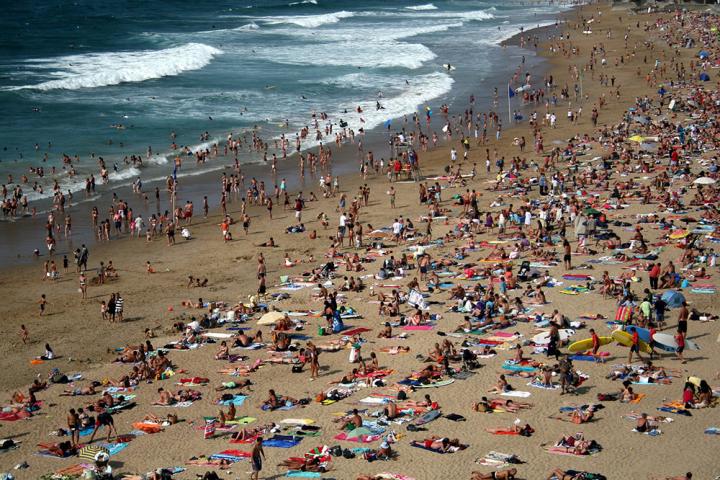Scotland’s second Covid wave linked to travel trends
Early second wave coronavirus cases can be traced to travel from outside Scotland, genetic insights show.

The autumn wave of the Covid-19 pandemic mostly originated outside Scotland, a study from scientists from the Roslin Institute in collaboration with colleagues from the Covid-19 Genomics UK (COG-UK) consortium has revealed.
Coronavirus imported from Europe or other parts of the UK following the easing of lockdown gave rise to the current Covid-19 cases, the analysis has shown.
The findings, which have been submitted to UK government's Scientific Advisory Group for Emergencies (SAGE), suggest that it is possible to eliminate the virus from a country when stringent public health measures are in place, scientists say.
Coronavirus genetics
Scientists looked at the genetic code of coronavirus collected from patients and studied how it has evolved since the beginning of the pandemic. The viruses investigated represent around a quarter of all diagnosed cases in Scotland.
They found that the Scottish lockdown in the spring eliminated the majority of coronavirus lineages in Scotland. A lineage is versions of the virus with similar genetic codes, which arose from a single introduction of coronavirus into the country.
Between mid-July and the end of August, it was estimated from the genetic data that there were 46 lineages of the virus that originated outside Scotland. Of these, 28 were shown to have come from England, 13 from mainland Europe, four from Asia and one from Wales.
Results of independent investigations suggest that the majority of new virus lineages in this time period that were traced originated from individuals who had travelled from Europe.
Similar conclusions have been obtained for the pandemic in Wales.
The evidence has been collated by members of COG-UK ̶ a partnership of NHS organisations, the four Public Health Agencies of the UK, the Wellcome Sanger Institute and 12 academic partners, led by the University of Cambridge.
Data from the genetic code of the virus collected from Covid-19 patients allows us to quantify the number of coronavirus introductions in Scotland and understand spread from one region to another. As part of the COG-UK consortium, we feed this information to the Scottish Government.
COG-UK is supported by £20 million funding from the UK Department of Health and Social Care, UK Research and Innovation, and the Wellcome Sanger Institute. Roslin scientists were also supported by a grant from the Chief Scientist Office as part of the Rapid Research in Covid-19 programme.
** The Roslin Institute receives strategic investment funding from the Biotechnology and Biological Sciences Research Council and it is part of the University of Edinburgh’s Royal (Dick) School of Veterinary Studies. **
Related links
CSO: Rapid Research in COVID-19 programme
BBC - Covid in Scotland: Second wave reignited by summer holidays


